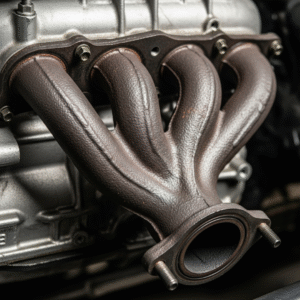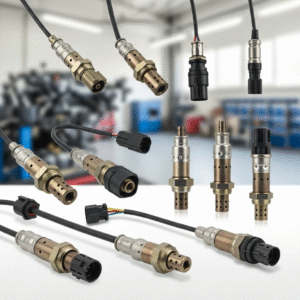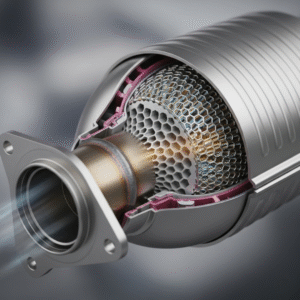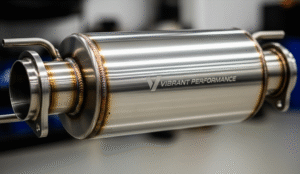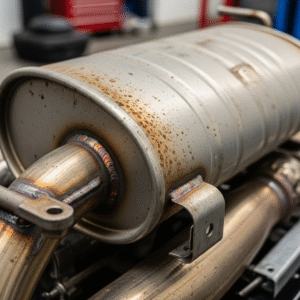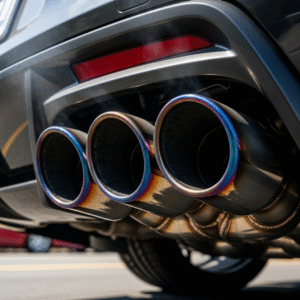When it comes to keeping your vehicle in top condition, one of the most common questions drivers ask is: what are exhaust systems and why are they important? Whether you own a compact car or a heavy-duty pickup truck, your exhaust system is essential for performance, fuel efficiency, and even your safety. Understanding how it works, what parts it includes, and how to maintain it can help you get the best out of your vehicle.
What Is an Exhaust System?
An exhaust system is a network of pipes and components that directs harmful gases away from your engine and out of the vehicle. Beyond removing toxic fumes, it also improves engine efficiency, reduces noise, and helps control emissions to meet environmental standards.
For pickup trucks, which often carry heavy loads or tow trailers, the exhaust system is even more crucial. A properly functioning exhaust ensures the engine can “breathe” efficiently, delivering the power and torque you need without straining fuel consumption.
Key Components of an Exhaust System
Whether you drive a car or a truck, most exhaust systems include the following components:
- Exhaust Manifold – Collects exhaust gases from the engine’s cylinders.
- Oxygen Sensors – Monitor oxygen levels in the exhaust to adjust fuel-air mixture.
- Catalytic Converter – Converts harmful gases like carbon monoxide and nitrogen oxides into less harmful emissions.
- Resonator – Works with the muffler to reduce noise and improve exhaust flow.
- Muffler – Minimizes engine noise for a quieter ride.
- Exhaust Pipes – Channels gases from the engine to the tailpipe and safely out of the vehicle.
In trucks, especially diesel pickups, the system may also include diesel particulate filters (DPF) and selective catalytic reduction (SCR) components to handle heavier emissions.
Why the Exhaust System Matters for Cars and Pickup Trucks
A well-maintained exhaust system benefits you in several ways:
- Improved Performance: By reducing backpressure, your engine runs more smoothly and delivers consistent power.
- Fuel Efficiency: Trucks and SUVs in particular can save on fuel when the exhaust system is in top shape.
- Reduced Emissions: Helps both cars and trucks meet strict emission regulations, contributing to cleaner air.
- Noise Reduction: Without a muffler, vehicles would be extremely loud. For trucks, aftermarket exhaust upgrades can provide a deeper growl while still keeping noise under control.
- Safety: Prevents dangerous fumes like carbon monoxide from leaking into the cabin.
Signs of Exhaust Problems
Cars and pickup trucks often show similar warning signs when the exhaust system needs attention. Watch out for:
- Loud noises – A failing muffler or exhaust leak can make your vehicle sound unusually loud.
- Decreased fuel economy – Blockages or leaks reduce efficiency.
- Strong exhaust smell – A dangerous sign that fumes may be leaking.
- Poor acceleration – Exhaust restrictions can rob your engine of power.
- Visible rust or holes – Especially common in trucks used for off-road driving or in areas with road salt.
Maintenance Tips for Exhaust Systems
To extend the life of your exhaust system:
- Inspect regularly: Look for rust, loose connections, or holes.
- Listen for changes: Sudden noise differences can signal a problem.
- Drive smart: Avoid short trips where moisture can build up in the system.
- Upgrade wisely: Pickup truck owners often benefit from performance exhaust systems designed for towing or off-road use.
Final Thoughts
Now that you know the answer to what are exhaust systems, it’s clear they’re more than just a way to control engine noise; they’re vital for performance, safety, and efficiency. Whether you drive a sedan for city commutes or a pickup truck for heavy-duty work, keeping your exhaust system in top condition ensures a smoother, safer ride. For high-quality upgrades and accessories, check out Scorpion Truck Stuff, your trusted partner in enhancing pickup truck performance.


